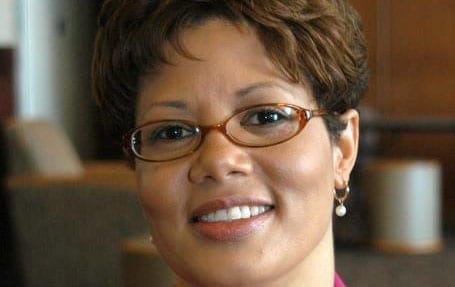Brenda Battle, ’81, ’96, began her career as a nurse, moving quickly into a broad spectrum of administrative positions. She currently directs multiple departments focused on the healthcare needs of urban populations.
As vice president of care delivery innovation at University of Chicago Medicine for the past four years, Battle directs community health initiatives. About 300,000 Chicago residents of all ages benefit from the programs.
“What I do insures that a patient has access to the resources they need across the full continuum of care,” Battle says. “When I can see that patients start connecting dots around what they do in their environment and what they do in their home that could potentially create risk for them around their health — and they learn how to avoid those risk factors — it’s gratifying.”
Battle is also the medical center’s chief diversity and inclusion officer. Her team promotes health literacy by translating documents into plain language, provides cultural competency training, and identifies variations in healthcare outcomes so programs can be developed to close those gaps.
“When we convey complex healthcare language in terms that persons understand, they have a greater chance of being adherent and actually engaging in their healthcare,” Battle says. “Our efforts also support workforce development and employee engagement strategies, by recruiting and attracting diverse talent; promoting efforts to ensure inclusion, such as diversity training and employee resource groups; and cultural competency.”
Battle’s career has given her deep experience across healthcare settings, including home care, hospitals, clinics and health disparity centers. She has also worked on the insurance side of the industry.
“I have always been in healthcare access and a large part of it has involved working to eliminate health disparities,” she says.
Battle earned her MBA from Maryville 15 years after graduating from the nursing program.
“Healthcare is a business, and getting my MBA was tremendously helpful,” Battle says. “I was fortunate to make it to a director’s level without an MBA, but I was doing a lot of work like profit and loss management and developing people and teams and programs. I decided I could use the theoretical knowledge while already doing this work. Without a doubt it has been helpful in understanding and developing a business acumen.”
 Brenda Battle.H
Brenda Battle.H